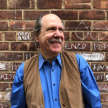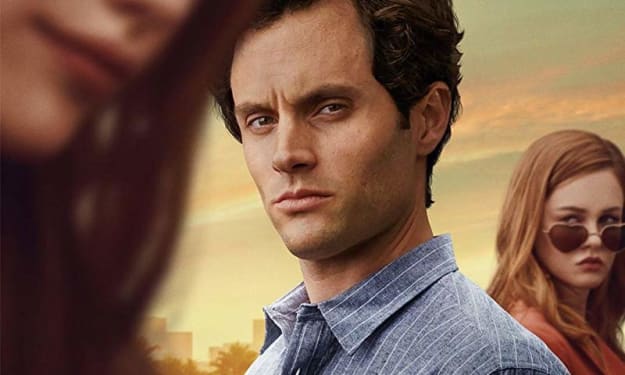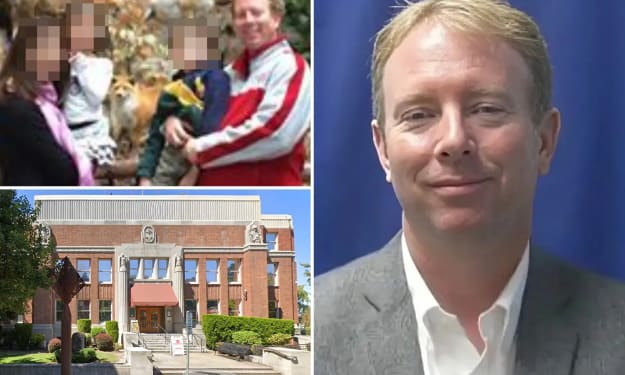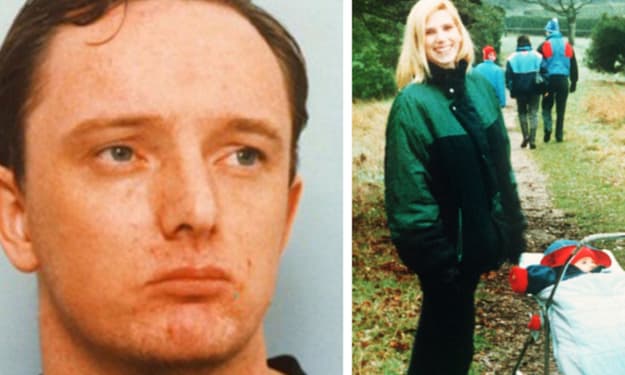The murder of George Floyd by Minneapolis police really got me thinking again -- as it should everyone -- about what we can do about this problem of homicide not prevented by but perpetrated by police who are supposed to protect us. It's a problem that has been erupting in America for decades, and caught on video ever since Rodney King was savagely beaten in 1991, which showed it's also a problem of assault and crimes committed by police that are less than murder. And though African-Americans are all too often murdered and brutalized by cops, Caucasians are also afflicted by life-threatening violence from police, as was the 75-year old man (Martin Gugino, a peace activist) thrown to the ground by Buffalo police, which landed him in serious condition in the hospital.
And, actually, I've been thinking about this since the late 1950s, when I was a 12-year-old kid in the Bronx. I was standing by a Carvel with my friends, a few days before July 4. A cop car pulled up, and two cops got out of the car, and announced they were looking for kids with firecrackers. When one of the cops approached me, I told him I didn't have any firecrackers (true). He asked me to empty my pockets. I asked him if he had a search warrant. His response was to shove me up against a wall, and frisk me. Later, when I got home, I told my father, who was a lawyer. We went to the police station and filed a complaint. Although I described the cop, I didn't get his badge number. The "case" was settled by the police about a week later telling my father that the cops on the mission to reduce illegal firecrackers that night had no recollection of any such incident.
And I came to realize something which was repeated years later when I was driving my teenage daughter home and I was pulled over. "Can I help you?" I asked the officer. "Can I help you?" he angrily repeated. He proceeded to give me a ticket for going through a stop sign that wasn't even there. (I never did find out why he pulled me over in the first place -- maybe it was the Hillary Clinton for Senate sticker on my bumper.) I got the ticket dismissed because the cop didn't even show up for the hearing, but I didn't appreciate spending my whole evening in town court.
I did appreciate, though, as in understand, that cops had no tolerance for any challenge to their authority. And as I heard the news about the murder of black men and women by police across America over the years, I came to understand that I had gotten away lucky. I was white. I was pushed up against the wall, I was illegally ticketed. Had I been black, I might well have been slaughtered. The common denominator in all of these cases is some challenge to police authority. The intolerance of police to such challenges pertains to all people. But when you add racism into the mix, you get police murdering George Floyd and hundreds of unarmed blacks over the years.
So what can be done about this? I'm not a psychologist, but it's obvious that, ironically, people who are insecure about being taken seriously, being respected, seem to line up to become police. Whether they can be trained to overcome this insecurity, I don't know. Maybe a more effective approach would be to weed them out in the first place, if possible, though that would no doubt deplete the pool of police candidates. In the long run, the very long run, and I mean this only semi-sarcastically, perhaps the best solution would be to replace human police with robot police -- robots which would be programmed to take challenges to their authority in stride, robots which wouldn't be racist.
But we can't wait for a run that's long, or any length at all. As the Rev. Al Sharpton said in his first eulogy for George Floyd, in a speech whose power and eloquence was right up there with MLK's, we need change right now. And that begins with police not only being suspended and fired, but brought up on the maximum charges that can be brought against them for their murder and assault of innocent people.
About the Creator
Paul Levinson
Novels The Silk Code, The Plot To Save Socrates, It's Real Life: An Alternate History of The Beatles; LPs Twice Upon A Rhyme & Welcome Up; nonfiction The Soft Edge & Digital McLuhan, translated into 15 languages. Prof, Fordham Univ.
Enjoyed the story? Support the Creator.
Subscribe for free to receive all their stories in your feed. You could also pledge your support or give them a one-off tip, letting them know you appreciate their work.






Comments
There are no comments for this story
Be the first to respond and start the conversation.